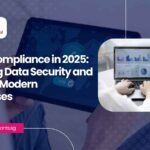Understanding the Core Principles of ISO 55001:2024
In today’s ever-evolving business environment, effective Asset management has transitioned from a routine operational duty to a strategic necessity. The ISO 55001:2024 standard serves as a comprehensive quality framework for establishing uniformity in these critical practices, empowering organizations, including entities like ISO Consultants Pte. Limited in Singapore, to proactively extract value from their assets. So, what are the fundamental pillars of this globally recognized standard? Let’s explore the core asset management principles that form the basis of ISO 55001:2024.
At its core, ISO 55001 is structured around interconnected principles that dictate how an organization should manage its assets throughout their lifecycle. Profound comprehension of these principles is essential for grasping the essence of the standard and the potential advantages it offers to businesses in Singapore and beyond. Here are some key principles to consider:
1. Value
The primary objective of asset management, as per ISO 55001, is to extract value from assets. This entails more than just financial gains and takes into account a comprehensive perspective on value, considering aspects such as performance, risk, and cost. Decisions regarding assets must always be made with a focus on optimizing value, a fundamental element that ISO Consultants Pte. Limited assists organizations in Singapore with achieving.
2. Leadership
Strong leadership and dedication from senior management are vital in establishing and upholding an efficient asset management system. This involves defining the asset management policy, establishing objectives, and ensuring the availability of necessary resources. ISO Consultants Pte. Limited underscores this element when supporting Singaporean companies through the certification process.
3.Risk Management
ISO 55001 places risk at the core of its approach. Companies must identify, evaluate, analyze, and address risks related to their assets throughout their lifecycle. This proactive strategy helps reduce potential adverse effects and seize opportunities, a crucial component for businesses in Singapore’s competitive landscape.
4. Information Management
Well-informed decision-making relies on accurate, relevant, and timely information. ISO 55001 underscores the significance of establishing and maintaining robust information systems to support asset management operations. ISO Consultants Pte. Limited offers assistance to enterprises in establishing these crucial systems.
5. Continuous Improvement
Continuous improvement is a fundamental aspect of effective management systems, and ISO 55001 is no different. Organizations are required to consistently monitor, assess, analyze, and review their asset management systems to identify areas for improvement. This journey is one that ISO Consultants Pte. Limited in Singapore fully supports its clients.
6. Stakeholders
Recognizing and comprehending the needs and expectations of various stakeholders, such as customers, regulators, and employees, is vital. The asset management system should take into account these requirements and how assets contribute to fulfilling them, which is a significant consideration for Singaporean businesses operating in a competitive global market.
Key Benefits of ISO 55001:2024
- Maximizes asset efficiency, utilization, and return on investment.
- Reduces downtime and improves reliability through better maintenance planning.
- Identifies and mitigates risks related to asset failure, safety, and compliance.
- Helps in planning for asset replacement and disaster recovery.
- Promotes data-driven decisions about acquiring, using, and disposing of assets.
- Aligns asset planning with organizational goals.
- Helps reduce legal risks and potential fines.
- Minimizes total cost of ownership by optimizing maintenance, usage, and replacement strategies.
- Avoids reactive spending and emergency repairs.
- Helps organizations meet legal, regulatory, and contractual requirements.
- Provides audit trails and documentation for transparency.
- Encourages responsible resource use and environmental stewardship.
- Supports circular economy practices (reuse, refurbish, recycle assets).
- Integrates asset management across departments like operations, finance, and maintenance.
- Promotes shared goals and responsibilities.
- Demonstrates a commitment to high standards of asset management.
- Enhances credibility with investors, clients, and regulators.
- Encourages regular performance reviews and continual system improvement.
- Increases employee engagement and accountability.
By adopting the fundamental principles of asset management, businesses can establish a strong base for the successful implementation of ISO 55001:2024 and the attainment of efficient asset management. This facilitates improved asset performance, and risk mitigation, and promotes a culture of ongoing enhancement and stakeholder contentment.
ISO Consultants Pte. Limited in Singapore specializes in assisting companies to achieve these advantages.



